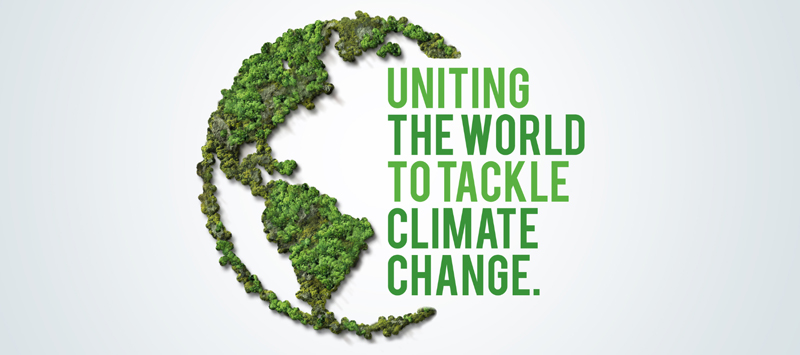
Tackling Climate Change: A Call to Collective Action
Alvin Anthony, 23COMF03, B.Com, Kristu Jayanti College, Autonomous
Today, climate change stands as one of the most pressing challenges of our time. With rising global temperatures, frequent extreme weather events, rising sea levels, and shifting ecosystems, its impact is impossible to ignore. Addressing this urgent issue requires concerted efforts from individuals, communities, corporations, and governments worldwide. Climate action is not just an environmental necessity but a social, economic, and moral imperative to secure a sustainable future for all.
Understanding Climate Change and Its Causes
Climate change refers to long-term temperature shifts and weather patterns, primarily driven by human activities like burning fossil fuels, deforestation, and industrial processes. These activities release greenhouse gases, such as carbon dioxide and methane, which accumulate in the atmosphere and trap heat, a phenomenon known as global warming.
The effects of climate change are extensive, affecting every facet of life on Earth. We are witnessing more frequent heatwaves, hurricanes, and wildfires, endangering coastal cities as melting glaciers and ice caps drive rising sea levels. Additionally, climate change exacerbates poverty and inequality by disrupting food and water supplies, intensifying food scarcity, and propelling mass migration due to failed harvests and water shortages.
Four Steps Toward Effective Climate Action
1. Reducing Greenhouse Gas Emissions
Immediate reduction of greenhouse gases is essential. Transitioning from fossil fuels to renewable energy sources, such as solar, wind, and hydropower, is a critical first step. Governments can support this shift with incentives like clean energy subsidies, carbon pricing mechanisms, and regulations to curb emissions in significant sectors such as transportation and industry.
2. Promoting Energy Efficiency
Enhancing energy efficiency in buildings, transportation, and industry can significantly reduce CO₂ emissions. This includes retrofitting homes and offices with modern insulation, promoting public transit, and supporting the use of electric vehicles. Industries can also improve energy efficiency or shift to bio-fuels to lower emissions.
3. Protecting and Restoring Ecosystems
Forests, wetlands, and oceans are natural carbon sinks, absorbing significant amounts of CO₂. We can enhance their role in combating climate change by preserving and restoring these ecosystems. Initiatives like reforestation, afforestation, and sustainable land management are essential to ensure these ecosystems remain resilient and effective.
4. Advancing Climate Adaptation and Resilience
Adaptation is essential to manage the impacts of changes already in effect. Building climate-resilient infrastructure, implementing early warning systems, and enacting policies to protect vulnerable communities can help societies withstand climate-related disruptions. Building resilience is critical to adapting to our evolving environment.
What Can We Do as Individuals and Communities?
While governments and businesses play critical roles, individuals and communities are vital to climate action. Simple steps like reducing energy use, minimizing waste, using sustainable transportation, and supporting eco-friendly products may seem small, but collectively, they can have a significant impact. Additionally, raising awareness, educating others on climate issues, and advocating for sustainable policies are powerful ways individuals can contribute to tackling climate change.
Addressing climate change is a shared responsibility that demands action from all levels of society. By reducing emissions, improving energy efficiency, protecting ecosystems, adapting to climate impacts, and enhancing international collaboration, we can build a more sustainable future and counter the effects of global warming. The time for action is now—our planet's health and the well-being of future generations depend on it. Together, we can make a difference and secure a livable world.